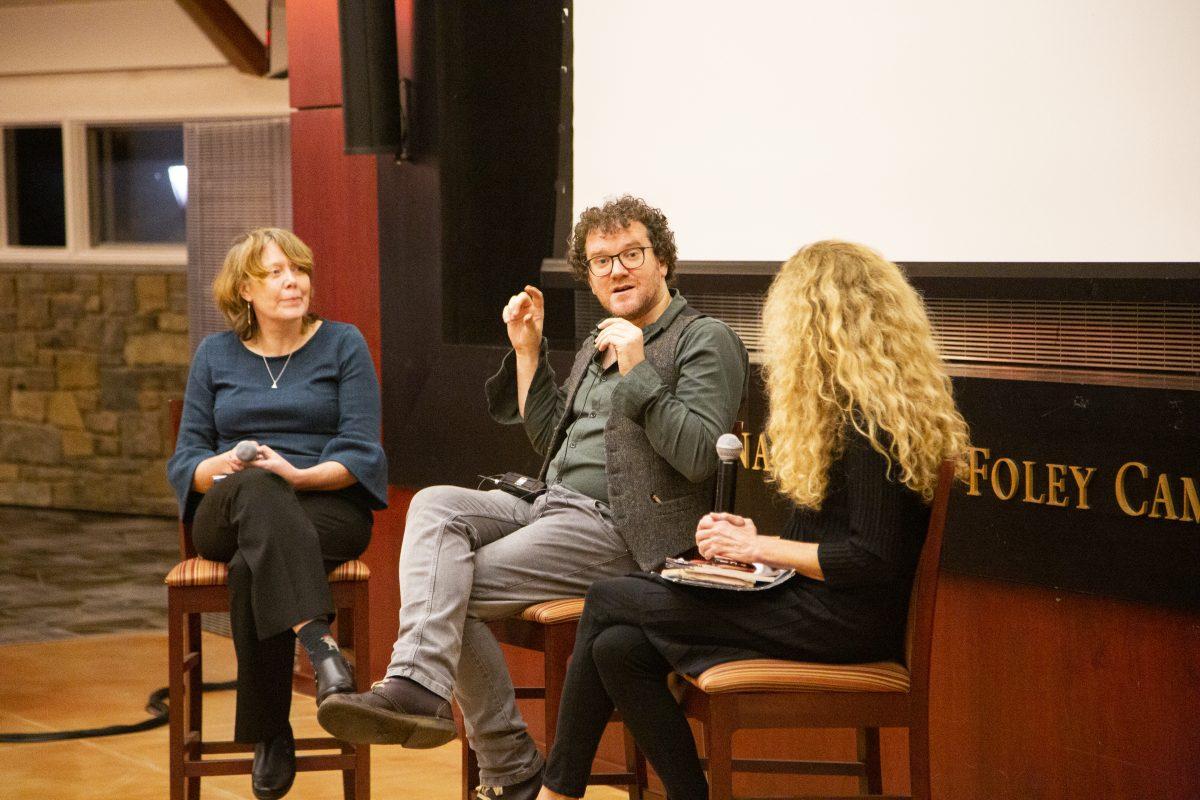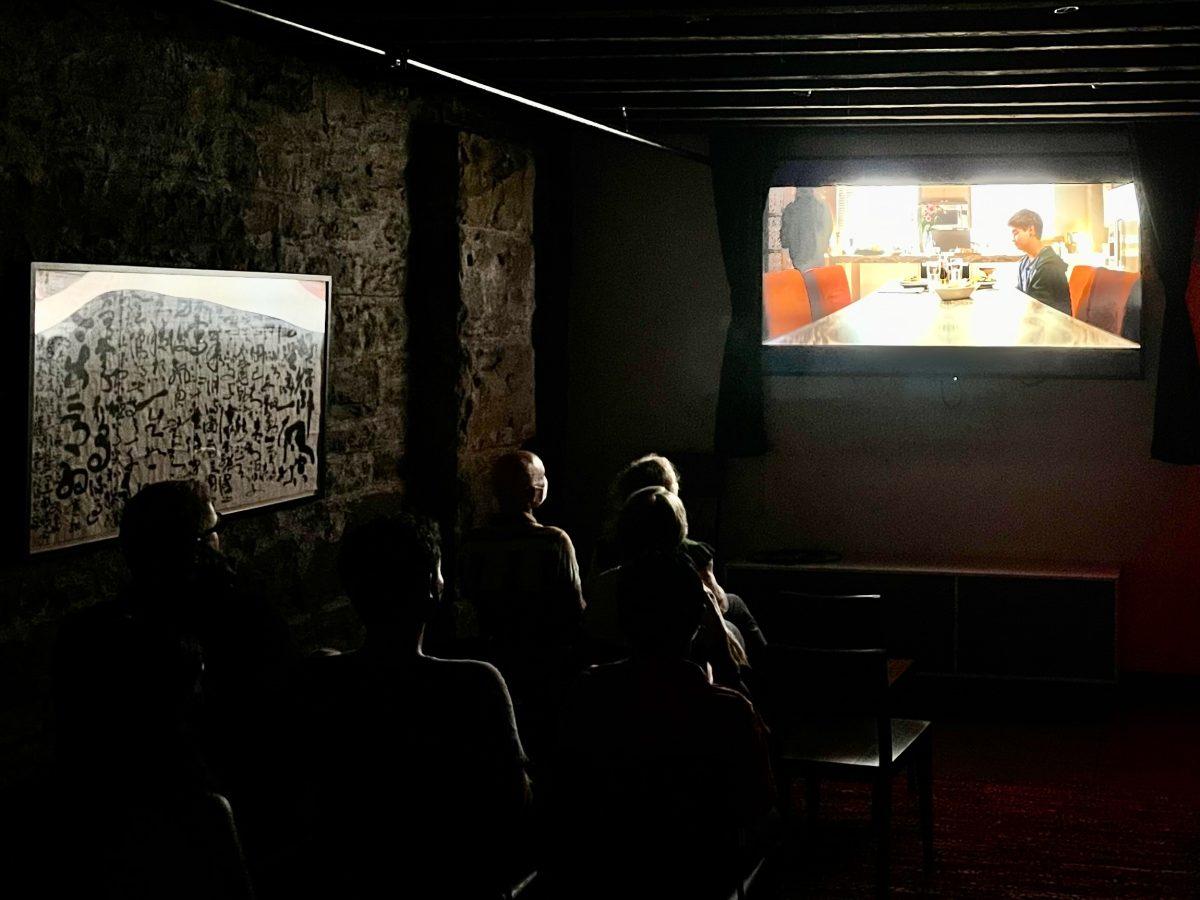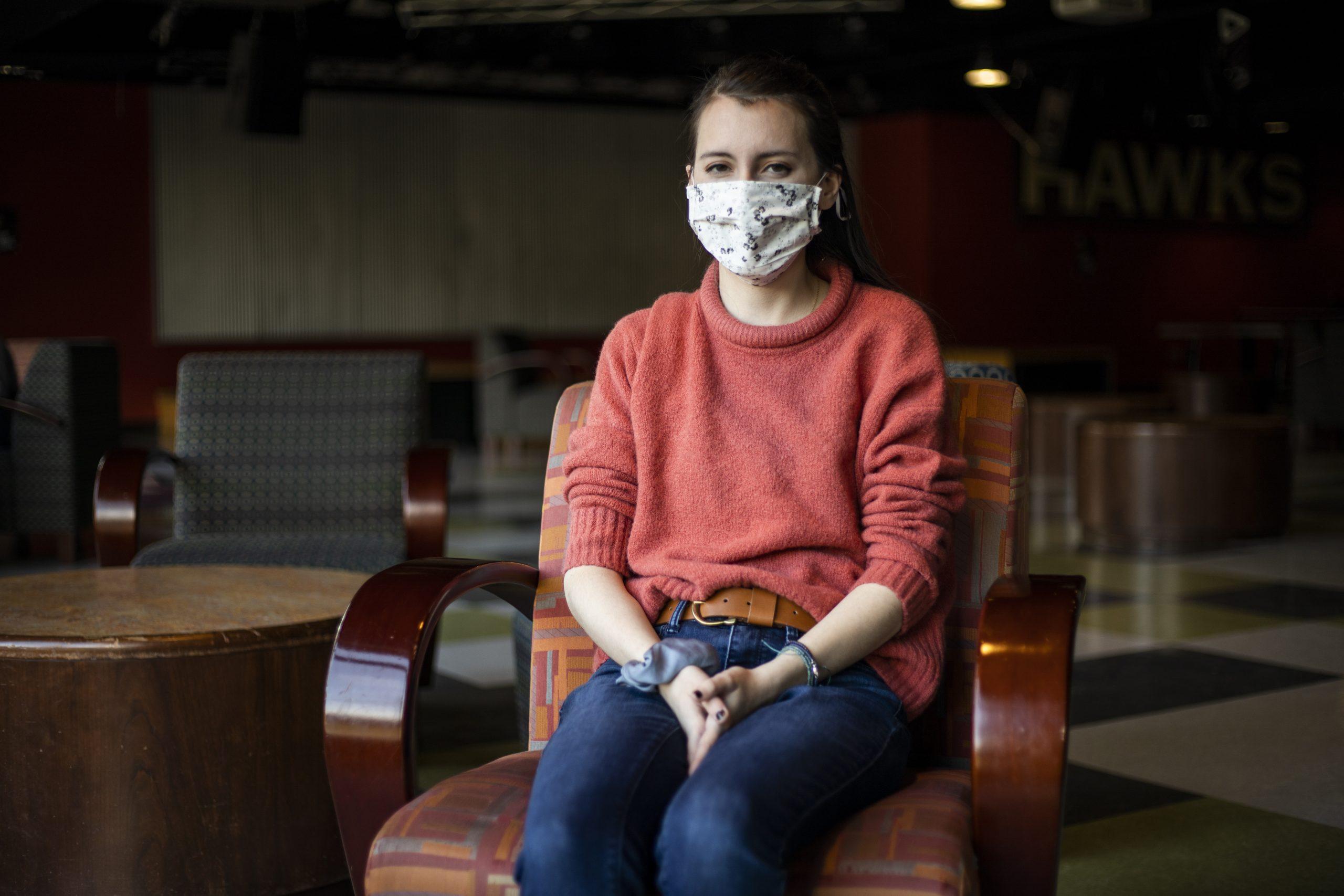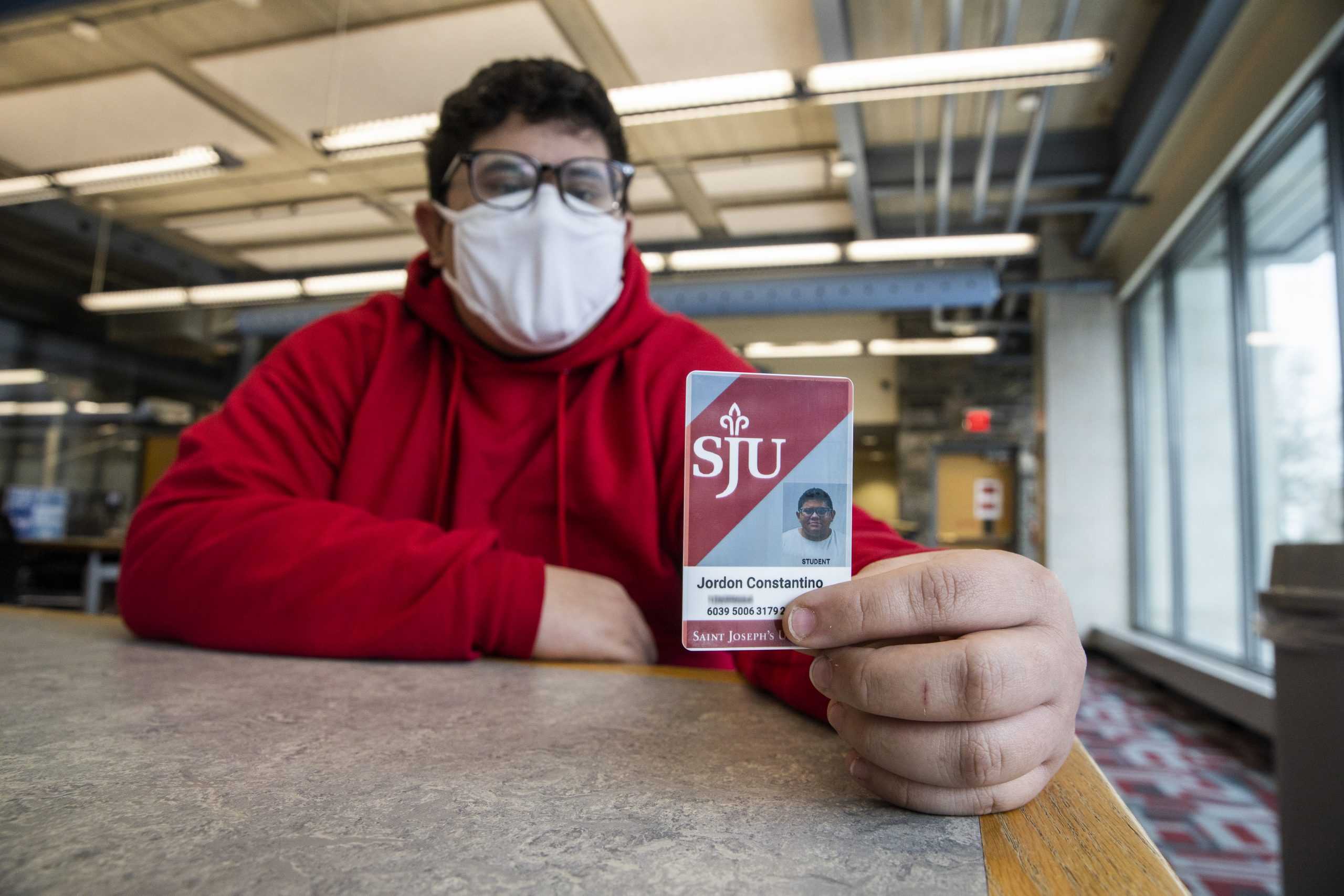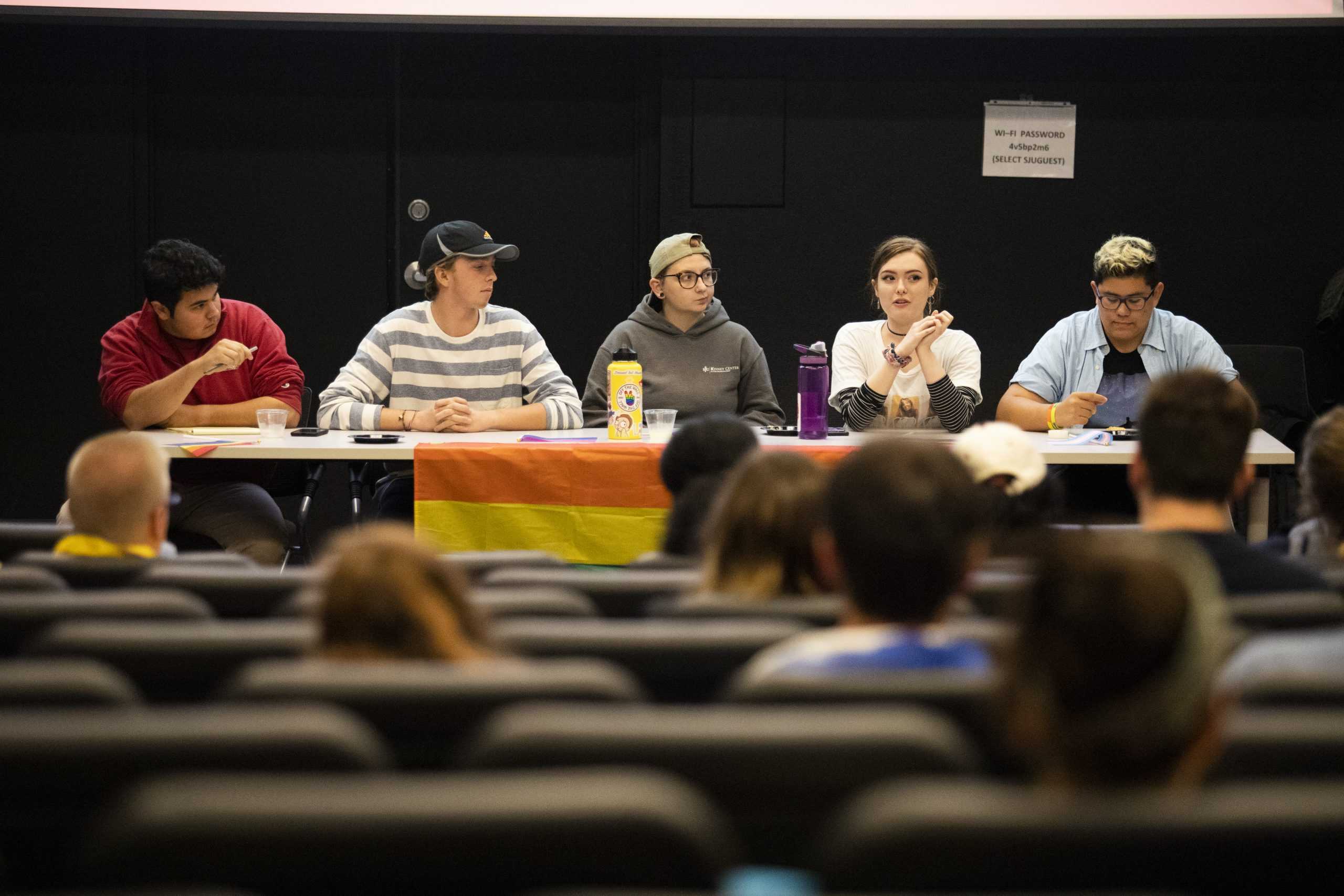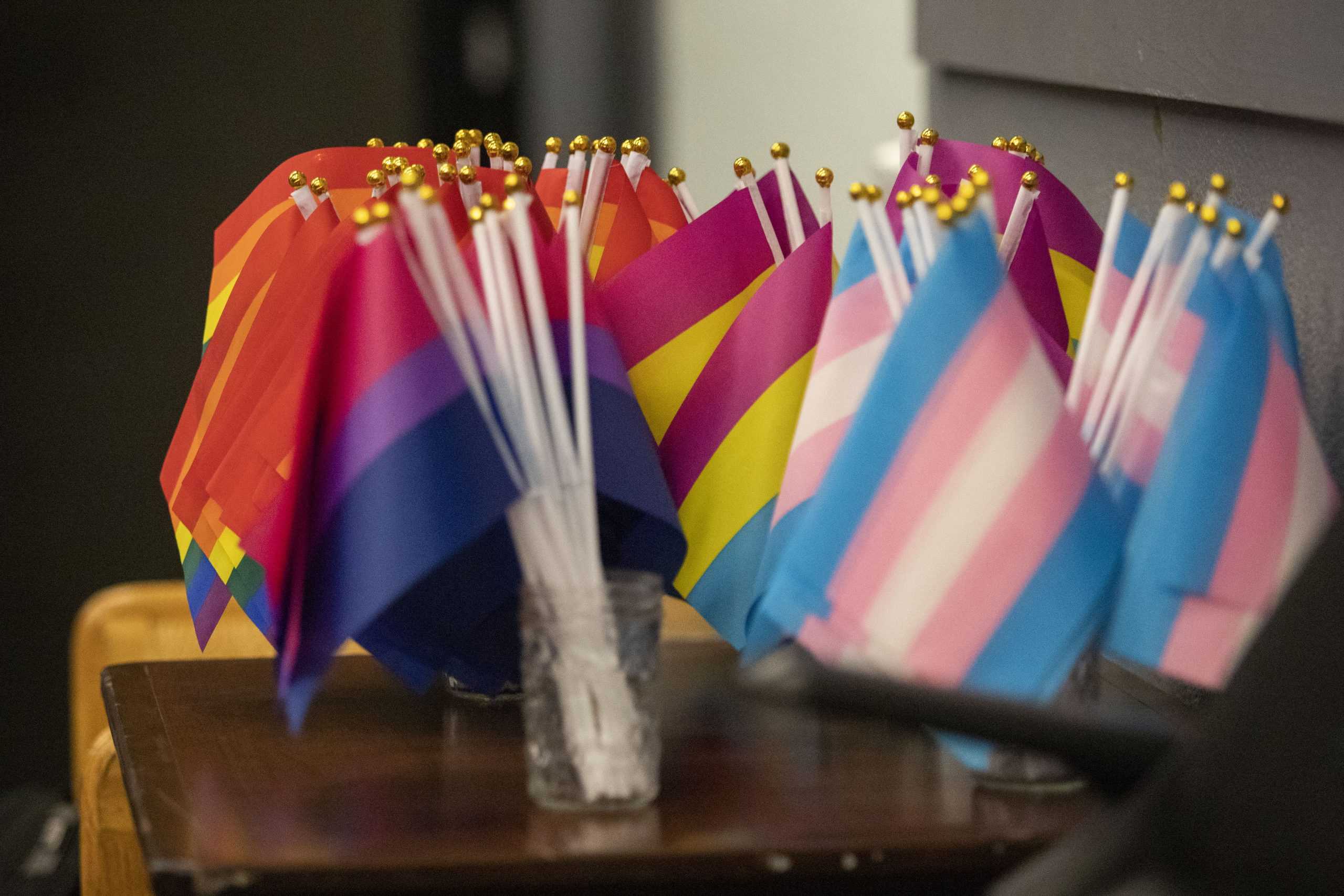Pádraig Ó Tuama, theologian and poet, and Marie Howe, the 2012 State Poet for New York, held a poetry reading in honor of those who are marginalized by the Catholic Church on Oct. 29 in the Cardinal Foley Campus Center.
“Moving Beyond Belief: poems and stories in conversation with Catholicism” was sponsored by the Faith-Justice Institute and the English department. Ó Tuama and Howe read three poems each, which focused on their personal struggles with religion and marginalization. At the end of the event, the poets held a Q&A session where students and faculty could ask further questions about religion and poetry.
Howe said there is a deeper meaning to poetry than what is portrayed in classrooms.
“[I hope] that [people] will realize that poetry is for them and that it belongs to them,” Howe said. “That they can read it without suffering, without having to write a paper about it, or pass a test about it.”
Vithida Sok ’23 attended the event because she is currently studying Howe’s poetry in her English class.
“It was different being able to hear her read it versus when I was reading it,” Sok said. “It gave it a whole new perspective. This is my first time being introduced to poetry and Catholicism.”
Ó Tuama said his relationship with poetry helped him discover his own identity as a Catholic.
“I find that the whole hope of liturgy is that you’re creating something that gives you a sense of meaning,” Ó Tuama said. “Even, especially, if you feel that meaning is losing or fading away.”
Ó Tuama, who identifies as gay, said it was frustrating when his religion came between himself and his sexuality. As a child, Ó Tuama was forced to participate in conversion therapies like exorcism.
“Communities that have felt marginalized have been feeling like our visibilities are denied and our voices aren’t amplified,” Ó Tuama said. “And so visibility of voices that aren’t divorcing faith and the truth about our sexuality and it’s an amplification of that.”
Similarly Howe’s brother, who also identified as gay, died of AIDS in 1989. Since then, she has found herself writing in what she calls “the hole that his body left behind.” Howe feels strongly about how the LGBTQIA+ community is viewed inside and outside the Church.
Ó Tuama hopes he can increase the visibility of the LGBT+ community through his writing and teach others how to be more accepting of themselves.
“I hope that they are listening to themselves,” Ó Tuama said. “I would never assume that I could open anyone’s eyes, but I would hope that people might think, ‘Yeah, I listen to myself now.’”
After listening to the poems, Sok felt like Ó Tuama sharing his poetry made a statement of equity and inclusion.
“I think it is a really good way to reach out to the people because art can be really expressive,” Sok said. “Everyone should be included regardless of their gender, race or sexuality.”
Ó Tuama said he hopes that his audience gains more tools to engage with their religion.
“Everybody could benefit from a religious tradition that can muscularly engage with its own edges,” Ó Tuama said. “Hopefully people have some new verbs and some new permissions to speak about their own religion.”
















































